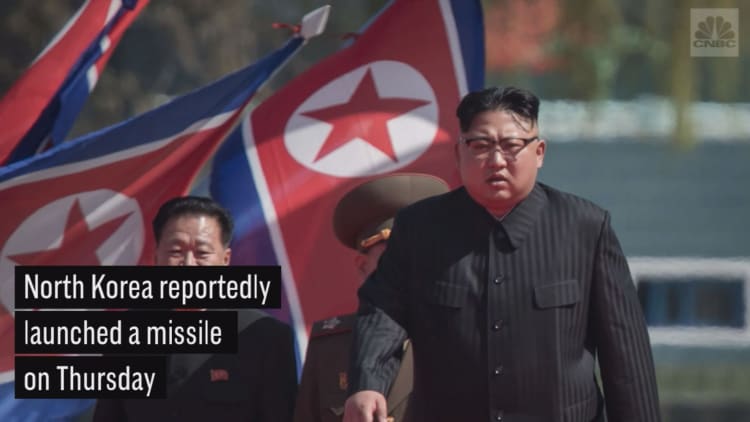
The outbreak of military conflict on the Korean Peninsula would be destabilizing and could possibly result in a global war, according to Citi's top global political analyst.
While it was impossible to put a number on the scale of the North Korea risk, war games carried out through history have simulated what could happen as a result, said Tina Fordham, managing director and chief global analyst at Citi.
"A conflict on the Korean Peninsula would not only be very disruptive in the region, but could potentially lead to World War III because of the U.S. security guarantee, so it would be internationalized overnight," Fordham told CNBC's "Street Signs" on the sidelines of the Milken Institute Asia Summit in Singapore.
North Korea carried out its sixth and most powerful nuclear test on Sept. 3, worsening already fraught U.S.-North Korea relations. In response, the United Nations Security Council voted to intensify sanctions, including imposing a limit on oil imports, against the hermit state.
While the duration and scope of such a conflict would be difficult to measure, North Korea remained an immense risk, Fordham said.
"It is the single biggest geopolitical threat and one that would also move markets ... When we look at political risk, we look at whether it's likely to cause an oil price shock or a growth shock. And in the North Korea case, if the worst were to happen, it would be both," she added.
For now, Fordham said she was loathe to assign probabilities to further developments on the peninsula given the volatility of variables in the mix. She pointed to the difficulty predicting what North Korean leader Kim Jong Un and President Donald Trump would do.
She added: "Not only is the North Korean leader ramping up the tests, with six this year, but Donald Trump is also changing U.S. foreign and security policy in a way we haven't seen before."
"That mix of unpredictability in the key leaders just adds to the mix of the potential for misunderstanding and accidents, at a minimum, and possibly something worse."
Still, she cautioned against viewing the outcome as a binary.
"Investors tend to see it as either there will or won't be conflict," Fordham said, noting that there could be important developments in between extremes.
WATCH: N. Korea reportedly launches missile that passes over Japan


